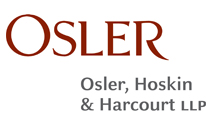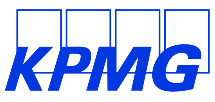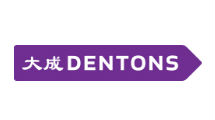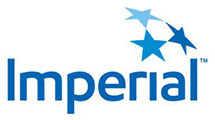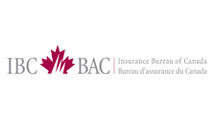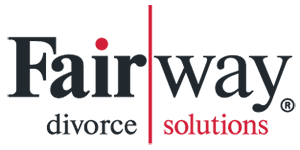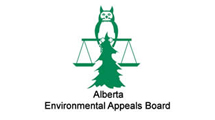DIVERSITY in ADR: Ethics and Inclusion
An Important ADRIC Webinar Series
click on the title of the session for a link to the recording
CPD Accreditation information at bottom of this page
*Ces sessions ne seront présentées qu’en anglais
ADRIC’s members provide services for clients who have diverse backgrounds and individual needs. We seek to assist members and uphold best practices. In an effort to shed light on unconscious bias, racism, discrimination and inequality faced by Indigenous and marginalized groups across Canada, we are providing a series of eight professional development webinars called Diversity in ADR: Ethics and Inclusion.
This series was facilitated by a diverse team of experienced ADR and subject matter experts.
The webinars were free of charge to all: ADR practitioners, like-minded professionals and others and are now available as free on-demand recordings.
Participants:
- Examined and discussws what systemic bias is in a variety of contexts including race and gender, and how it impacts our organizations and the ethical practice of ADR
- Explored what “white privilege” and “systemic racism” means and looks like, assessing these in our own context (personal and organizational) and discussing strategies for avoiding them
- Reviewed and discussed the many benefits of inclusion and diversity roadblocks to achieving inclusion and why this is important for Canadians and for ADR
- Heard the experiences of non-mainstream professionals to better understand the impacts of systemic bias and the benefits of diversity
- Learned how our systems and cultures have unconsciously built in bias and discrimination, how they are unconsciously repeated and how to avoid their continuation
- Had an opportunity to self-assess and identify any biases they or their organizations may have in an open and honest way
- Were able to ask questions and ideas in a non-judgmental forum that they may previously been afraid to ask at risk of seeming to be “politically incorrect”
- Developed an increased understanding of our Canadian history, relationships between indigenous and non-indigenous peoples, and what Truth and Reconciliation may mean for our ADR practices and organizations
- Explored how we can promote greater diversity within our ADR Institutes Federation membership
- Had an opportunity to share ideas and learning with one another
1. Listening Circle: What is Diversity, Inclusion and Truth and Reconciliation, recorded October 14, 2020
Having constructive conversations about racism and bias can be challenging. The goal of this listening circle is to provide a shared emotional connection related to the current dialogue on equity, inclusion, and systemic racism in Canada. The listening circle will provide a space for people to connect, share their experiences, and look to the future. Stories are how we connect and make sense of the world. We continually re-story as we become greater aware. Using a traditional narrative inquiry approach helps to unpack hidden biases in a safe, non-judgmental setting, useful in ADR approaches. Participants will learn a facilitated process using restorative questions to allow for the exploration of issues on a deeper level with people you don’t know who may have different opinions and experiences. During the circle, participants have the responsibility to listen to others and be listened to.
- Gayle Desmeules, BA, MA, Q.Med, TrueDialogue Inc., International Institute of Restorative Practices
- Pat Lewis, International Institute of Restorative Practices
2. Allyship: Authentic vs Performative, recorded October 21, 2020
What is an anti-racial ally? What is an authentic ally? And what is a performative ally?
This session will explore these questions and others, provide some real-life examples of some cringe-worthy attempts at allyship and discuss how how we might learn from them.
In the safe environment of this session, participants will be invited to pose the critical questions and will learn:
- How to recognize if you or others are falling short or are uncertain
- Why discomfort is actually good
- How to respond when people with privilege deny or justify their position
- How to raise the topic of power and privilege and to keep asking the hard questions
- Bruce McIvor, First Peoples Law Corporation
- Val Napoleon, Associate professor, Law Foundation Professor of Aboriginal Justice and Governance
- Mary Ellen Turpel-Lafond, Senior Associate Counsel, Woodward and Company; Professor of Law, Peter Allard Hall Law School at UBC
Resources provided by the speakers: Key Concepts to build the Anti-Racism Professional Tool-Kit; Napoleon Legal Pluralism published version 2019-11; Napoleon Indigenous Democracy (010); Napoleon Did I Break It Published 2019 (1); METL PPT
3. Voice and Choice: Power, Privilege and Reconciliation – Understanding and Recognizing in Ourselves and Our Clients, recorded October 28, 2020
This session takes a practical and experiential approach to recognizing and responding to systemic racism in ourselves and in our communities. It will build awareness of our own bias and privilege, offer strategies, and question our role in fostering social justice.
Beginning and ending the workshop with body techniques to « listen » to our own hopes, needs and fears, we will share stories of systemic racism and white privilege in Canada. Then, through video clips, dialogue and exercises, participants will address their own bias and privilege, and the role they choose. We will then explore strategies that speak to truth, justice and reconciliation, while valuing diversity inclusion and representation; strategies such as courageous conversations, reframing narratives, and co-constructing process.
- Leslee Mackey, Research Coordinator, Department of Emergency Medicine, University of Alberta
- Andréa Morrison, Global Dialogue
4. The Value of Inclusion in ADR: Learning from Non-Mainstream Practitioners, recorded November 4, 2020
Users of conflict management and dispute resolution services in Canada are diverse in race, ethnicity, age, gender, and life experiences. How has the ADR field in Canada evolved to reflect this diversity? Answers to this question will necessarily tease out critical matters related to community, access to opportunities, and notions of belonging. That is to say that we cannot talk about diversity without also talking about inclusion. On November 4, we invite you to join a diverse panel of ADR Practitioners, as they share their professional experiences and discuss the value of inclusion. What does inclusion in ADR look like? What are some roadblocks to inclusion in this field? How can we better amplify the voices of diverse practitioners without engaging in tokenism?
Many thanks to ADRIO – especially to Judy Shum, ADRIO Executive Director who was also on the planning committee for the series and to Tommy Lam who expertly organized this session!
Speakers:
- Ethan “Jerry” Mings, Q.Med, CTF, CPF|M, Moderator
- Afsana Gibson-Chowdhury, Q.Med
- Valerie Hunter, Q.Med
- David Lewis, BA, Q.Med, OCGC-ADR
- Maritza Sanchez, Q.Med, WFA
- Find all the speaker’s photos and bios here (we regret Patricia Deguire was not able to participate after all)
5. Changing Systemic Biases and Discriminatory Practices in Organizations, recorded November 10, 2020
*Please note: The recording continues for some time after participants are in breakout rooms (we neglected to pause the recording) so you may wish to advance your viewing from about 36:30 to 51:53 when participants come back from the breakout rooms for the full group discussion.
Interested in changing the course of history? Come join this 90-minute exploration where David and Sara’s combined expertise in equity and human rights will guide you through:
- Understanding our past through the Four “I’s” of Oppression
- Revealing the realities of today’s systems and practices
- How to journey to a different future through systems change
This session will be interactive with participants working in small teams to uncover the change waiting to happen in their own systems and practices. You are encouraged to bring a policy/procedure from a system you are in (i.e. Respect in the Workplace, Hiring Policy, Contract) to the session to deepen the experience (though not required!)
- Sara Luther, Human Rights Lawyer, Consultant & Coach
- David Lewis, BA, Q.Med, OCGC-ADR
6. A Trauma-Informed Approach to Managing ADR, recorded November 18, 2020)
We regret this recording is no longer available.
In this 90-minute session, Karen speaks about the role of trauma in dispute resolution processes, specifically:
- Trauma and inter-generational trauma in the Indigenous context
- The prevalence of personal trauma
- How a trauma-informed practice can support reconciliation in the Indigenous context
Karen L. Snowshoe, Lawyer / Adjudicator / Mediator
6b. Trauma-Informed ADR: How to Support Clients Part 2 – recorded January 27, 2021, with Karen Snowshoe and Vicki Enns
We regret this recording is no longer available.
6c. Trauma-Informed ADR – Part 3 – recorded April 7, 2021, with Karen Snowshoe and Vicki Enns
We regret this recording is no longer available.
7. Creating Brave Space: Asking the Tricky Questions, recorded November 25, 2020
In this workshop, participants have the opportunity to ask the questions that don’t often get explored because they may be taboo or lead to discomfort. Through this workshop, participants have access to opening space for uncomfortable discussion in an honest and safe way. Exploring the answers to some of these questions using an inclusion and anti-oppression lens, will allow for a springboard to action: what can we do in our personal and professional lives with this information? A main goal of this workshop is to empower participants to carry on these uncomfortable but vital conversations beyond the workshop itself.
- Roselle M. Gonsalves, BA, MA, Ph.D
- Michael Schafler, LL.B, Q.Arb, ADRIC Director
Roselle is an immigrant settler to Canada. She is the Director of Learning at the Canadian Center for Diversity and Inclusion, and comes to the work with 10+ years of teaching experience, in a variety of different sectors, and in a diversity of formats including small group workshops and large classes. She is well-versed in curriculum and instructional design, and has spent the last few years in roles dedicated to the design and delivery of EDI programming, most recently in the post-secondary sector. Roselle has a deep appreciation for diversity in its many splendid forms: from religio-cultural expressions to variations in styles of learning.
Roselle approaches her work with a sense of humour, and a reflexive, intersectional, anti-oppression, anti-racism framework to allow for more inclusive ways of understanding the world. She believes passionately in equitable access to support and resources. In her spare time, Roselle is a novice curler, loves travel, and enjoys a good true crime podcast!
8. Sharing Circle: Moving our Practices and Organizations Forward, and Advancing the Process of Truth and Reconciliation, recorded December 2, 2020
General Reflections: What have I learned about diversity and inclusion important for me to remember personally, professionally, and in my ADR practice?
What resonates with me about the history and impact of colonization on Indigenous and non-Indigenous Canadians? e.g. discovering false assumptions or hidden biases, more in-depth understanding of white privilege and systemic racism, trauma-informed approach to practice
What is the meaning of reconciliation to me: What acts of reconciliation can I personally commit to that will advance diversity acceptance and reclaim healthy relationships within my circles of influence? (family, friend group, organization, community, ADR practice)
- Gayle Desmeules, BA, MA, Q.Med, TrueDialogue Inc., International Institute of Restorative Practices
- Pat Lewis, International Institute of Restorative Practices
- Professional Development Accreditation:
- ADRIC Continuing Education & Engagement (CEE) points: 2 points per hour for each session
- Law Society of Ontario:
- This program contains EDI Professionalism Hour(s), as follows:
- Session 1: 1 hr 45 mins
- Session 2: 2 hrs
- Session 3: 1 hr 30 mins
- Session 4: 2 hrs
- Session 5: 1 hr 30 mins
- Session 7: 1 hr 30 mins
- Session 8: 1 hr 30 mins
This session contains Substantive content, as follows:
Session 6: 1 hr 30 mins
CPD accreditation pending from all Law Societies across Canada
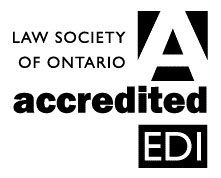
- This program contains EDI Professionalism Hour(s), as follows:




